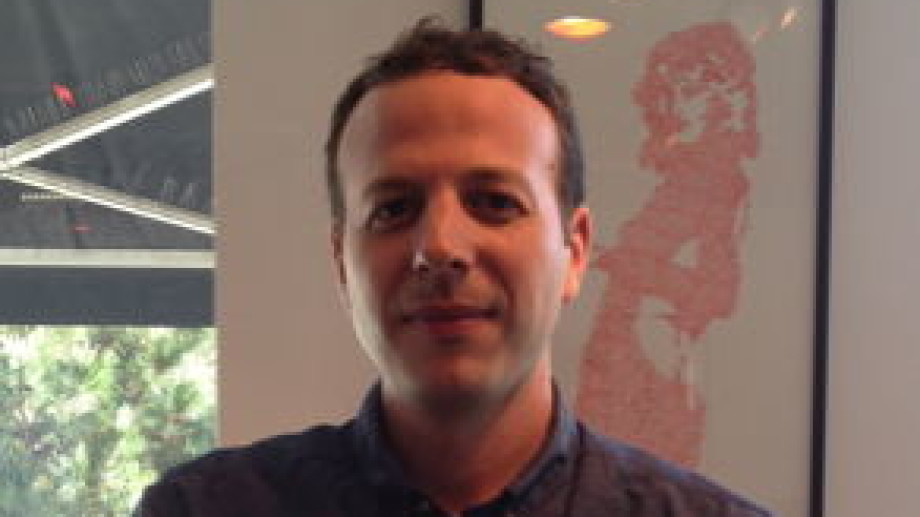
Amat Escalante discusses his film Heli with Film Society's Eugene Hernandez. Photo: Irene Cho
Listen now:
Mexican director Amat Escalante became unexpected poster child for his home country in the early days of the 2013 Cannes Film Festival. In particular, given a number of graphic scenes in Cannes competition entry Heli, Escalante has been thrust into the spotlight to comment on the violence back home. When we spoke on a terrace overlooking the Palais des Festivals here in France, he had just concluded a video interview with Reuters.
“My only defense is that it's really like that,” Escalante said of the drug violence in Mexico. In fact, he added, “It's worse. Worse than it is in the movie.”
A scene of American training torture in Mexico is depicted early in Heli. Escalante explained that he took that scene from a YouTube video he watched of American's training Mexicans to withstand torture (by torturing them).
“It's a great country that has this virus that invades certain parts, and many people are suffering a lot from it,” Escalante said of his home—he lives in Guanajuato—during a festival press conference.
There have been more than 2,000 murders in Mexico from drug related violence this year alone, Amat Escalante added during the Daily Buzz interview over the weekend.
“I wouldn't have shown those scenes they way I did if it wasn't for the idea that there were very young people being affected by that violence,” Escalante explained. “That is what's happening. I felt the need to show it and, to have a great impact, I wanted to go all the way with the violence.”
Escalante is Mexican. His Dad was born in America and his mother in the United States. He's grew up in both countries but now lives in Guanajuato. Watching A Clockwork Orange, as well as Richard Linklater's Slacker, as a teenager inspired him to pursue filmmaking. Escalante moved to Austin, TX where he worked in a fast food restaurant and at a video store and immersed himself in the programming at Linklater's Austin Film Society, discovering the work of Ackerman, Benning, Tarkovsy, Bresson, Fassbinder and others.

A scene from Heli
Heli follows a few characters who encounter dramatic violence, but it also tracks a burgeoning relationship between two young people. The director of two previous feature films, Los Bastardos (2008) and Sangre (2005), Escalante added that this is the first of his films to explore love, the start of a relationship and the creation of new life.
“I am curious about sex and death and violence,” Escalante said the other day during the Cannes Film Festival press conference. “So that's all in the film… Sex is the last hope in the film. It's where everything can be saved or destroyed.”
Escalante seems sensitive, but realistic, about the focus on the violence in his new film. He defended that more people are killed, and more recklessly, in The Dark Knight (a movie he likes). But, he feels that his depiction of violence is more responsibly portrayed.
“For me, to show it the way that I think it should feel when somebody is killed in real life,” Escalante said in our interview, “it seems more honest and truthful the way I do it.”
Keep up with our Daily Buzz podcast interviews from Cannes here on FilmLinc Daily or on Fandor or iTunes.



